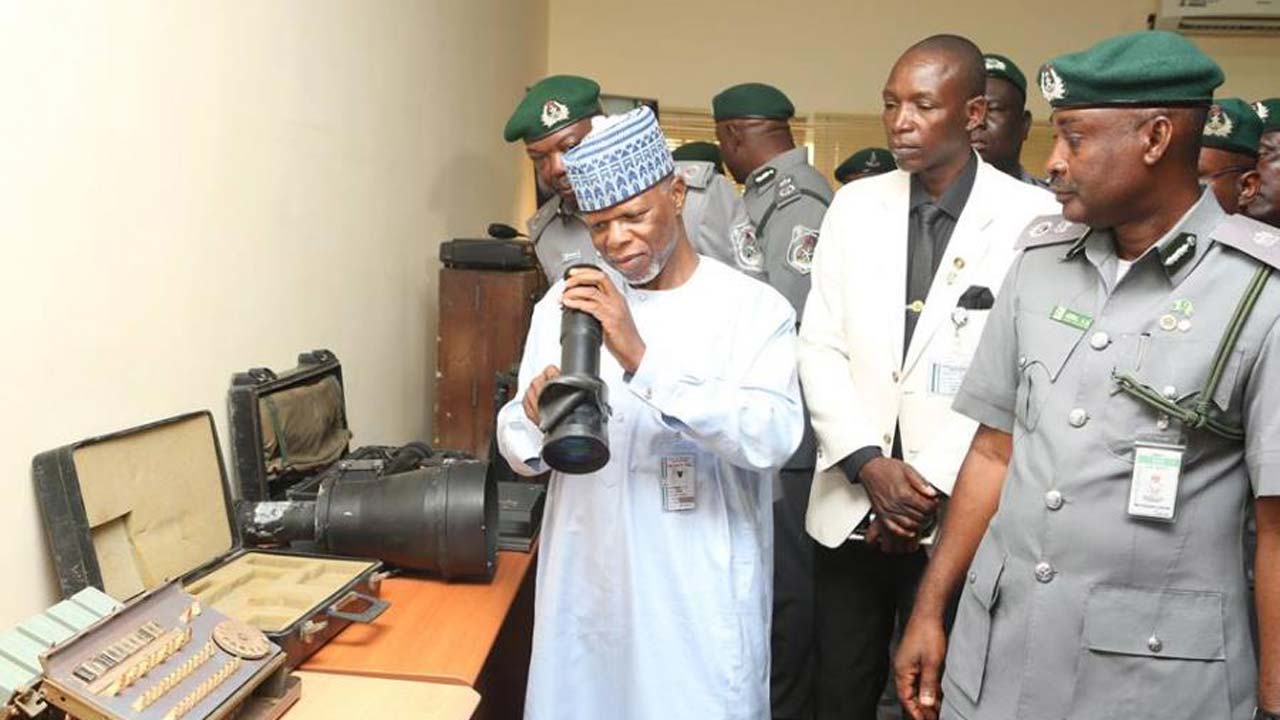

The House of Representatives on Tuesday passed a bill seeking to stop non-serving officers of the Nigeria Customs Service (NCS) from being appointed as comptroller-general of the agency.
A report on the bill was adopted after the Chairman of the Committee on Customs and Excise, Leke Abejide, moved a motion for the consideration of its 283 clauses at the “committee of the whole” presided over by Idris Wase, deputy speaker of the house.
The proposed legislation seeks to repeal the Customs and Excise Management Act, 2004 and reenact the Nigeria Customs Service (Establishment) Bill, 2021.
Hameed Ali, the current comptroller-general of the NCS, is a retired military officer.
Since his appointment in 2015, Ali has been carrying on his duties in civilian attire, and in March 2017, when he appeared before the senate committee on customs and excise duties, he was asked to explain why he refused to wear the customs uniform. Ali said as a retired army officer it was against military tradition for him to wear the uniform of another organisation.
Briefing journalists after plenary, Abejide said the proposed legislation was aimed at transforming the operations of the NCS to make it more efficient and value-driven.
He said the bill proposes “legislative input into the appointment of comptroller-general of customs similar to other organisations like inspector-general of police, Nigeria Immigration Service, and the service chiefs”.
The lawmaker said the existing act did not provide that only customs officers be appointed to head the service.
“The passage of this bill is a step in the right direction, especially in view of the fact that the bill is the first major reform in the Nigeria Customs Service legal framework in 63 years,” he said.
“The old Act has become obsolete in today’s competitive global world. A review of the Act seeks to reposition the NCS for improved efficiency and service delivery. Full automation of the NCS with modern reality will facilitate trade, improve revenue generation and more importantly expose illegal importation of arms and ammunition into the country. All of these would be made possible when this bill becomes an act.
“This bill, when it becomes an act, will position the Nigeria Customs Service to be financially stable and this will enable NCS to recruit the required number of officers they need to man our porous border stations.
“The current seven percent cost of collection from the duties payment is not enough to pay salaries of officers, not to talk of improving the infrastructures. For this reason, this bill provides for a funding system based on four percent FOB according to international best practices to address funding problems and to reposition the service for improved efficiency and service delivery.”
The bill, according to the legislator, proposes “stiffer punishments” for serious customs offences and will encourage more revenue in the area of payment of fines.
The bill also makes provision for “the arbitration panel for the purpose of dispute resolution to reduce multiplicity of cases at the court of law relating to customs issues; introduction of new excise collectable revenue avenues in line with the recently enacted Finance Act 2021; and provides legal backing for the collection of excise duties on all carbonated drinks”.
Reps pass bill to strip Vice President, governors, deputies of immunity The House of Representatives…
Businessman collapses in court during trial over $578,000 cash seizure A businessman, Okorie Sunday, who…
Fire guts Onitsha market, many shops, goods destroyed A night fire at the popular Iweka Road,…
Security forces disperse rioters on Abuja expressway Security forces fired tear gas and gunshots on…
Bills to create 4 new states scale second reading at House of Reps The House of Representatives…
Tinubu signs South-West, South-South dev commission bills into law President Bola Tinubu has signed the south-west and…